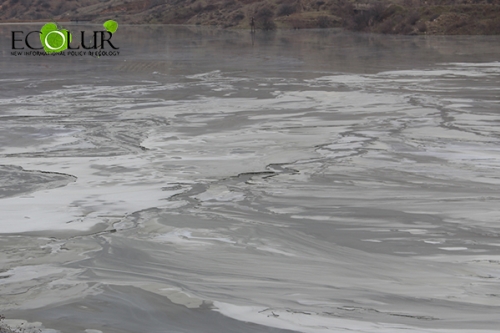

EcoLur
The intense development of metallic mining in Armenia is accompanied with health problems in line with environmental pollution. Over many years the residents living next to developed mines and plants have continuously been beating alarm signals in health diseases caused by toxic emissions, heavy metals, pollution of water and soil resources, including carcinogenic ones. The local residents are demanding to conduct studies in their residential areas and to introduce health insurance system.
Deputy Director General of National Center for Disease Control and Prevention Nune Bakunts mentions there is no developed methodology available, which will prove the linkage between mining and disease generation.
'We should understand the impact of mining on health is not unequivocal. Worldwide the cause of cancer diseases hasn't been explained, we need methodology and many data on the environment: the methodology is currently being developed,' Nune Bakunts said at the discussion organized by Transparency International, which was entitled “Teghout Disaster: Which Is The Solution?”.
Referring to the health risks of Teghout copper and molybdenum mining project, Nune Bakunts said there are not data. A Teghout resident present at the discussions noted there were initial health studies carried out in the communities before the launch of the mining project so as to detect later whether or not there is dynamics of increase in diseases.
'Armenian Women for Health and Healthy Environment' NGO President Lena Manvelyan reminded that Armenia is the leader in cancer morbidity among 172 countries in line with the global statistics.
Head of AUA Acopian Center for the Environment Alen Amirkhanyan reminded about the studies carried out by AUA, when there was a high level of lead detected in the children's blood in Alaverdi and Akhtala communities in Lori Region.
'Association For Sustainable Human Development' NGO President Karine Danielyan spoke about the UNICEF-funded project, which results showed that the riskiest mining zones in Armenia are Lori and Syunik.
'EcoLur' Informational NGO President Inga Zarafyan mentioned that all the health data should available for the public. 'Healthcare is not only treating patients, it's a business here in Armenia. Healthcare is also measures taken for disease prevention and the information in this sector must be open,' Inga Zarafyan said.
'Health Ministry must play a great ole and we should attempt to bring the ministry into the cooperation field and not blame it. We need to draw an objective image,' UNDP Sustainable Growth and Resilience Portfolio Manager Armen Martirosyan said.





July 06, 2018 at 17:36
